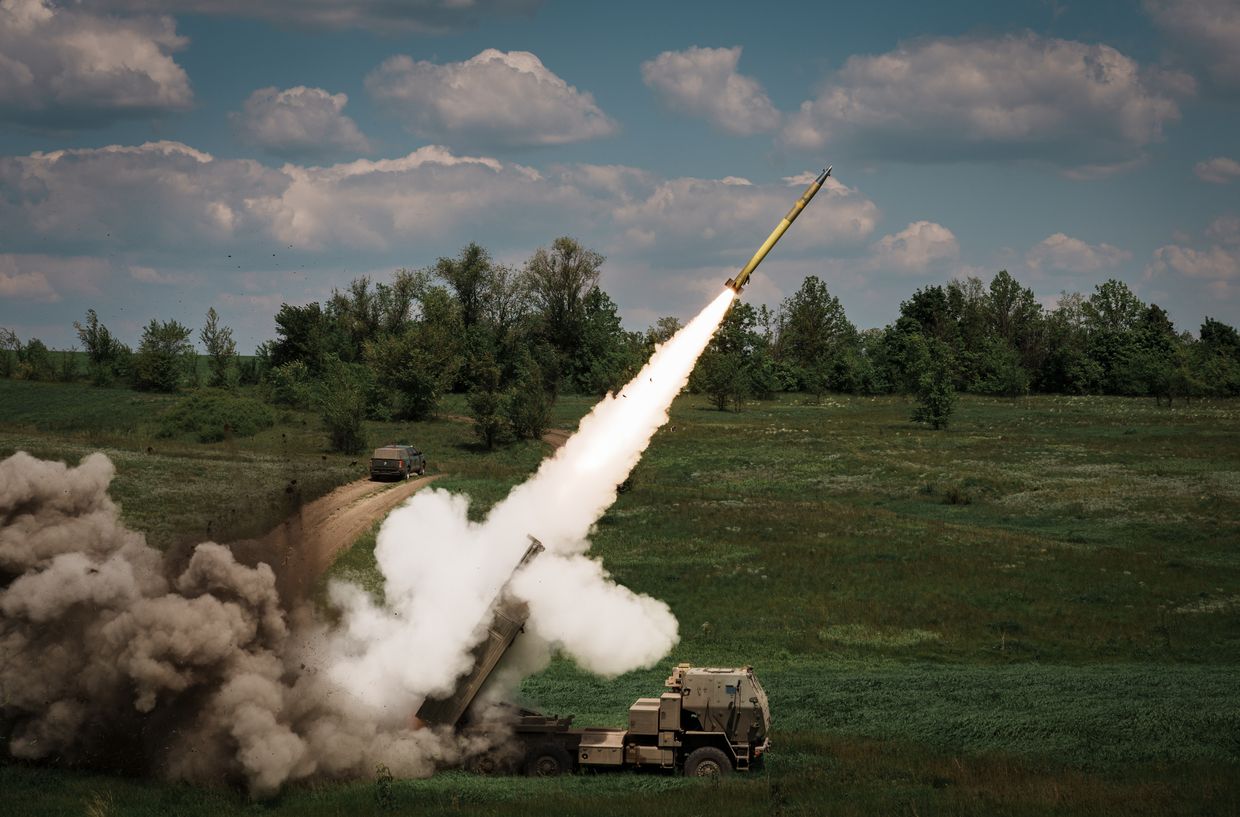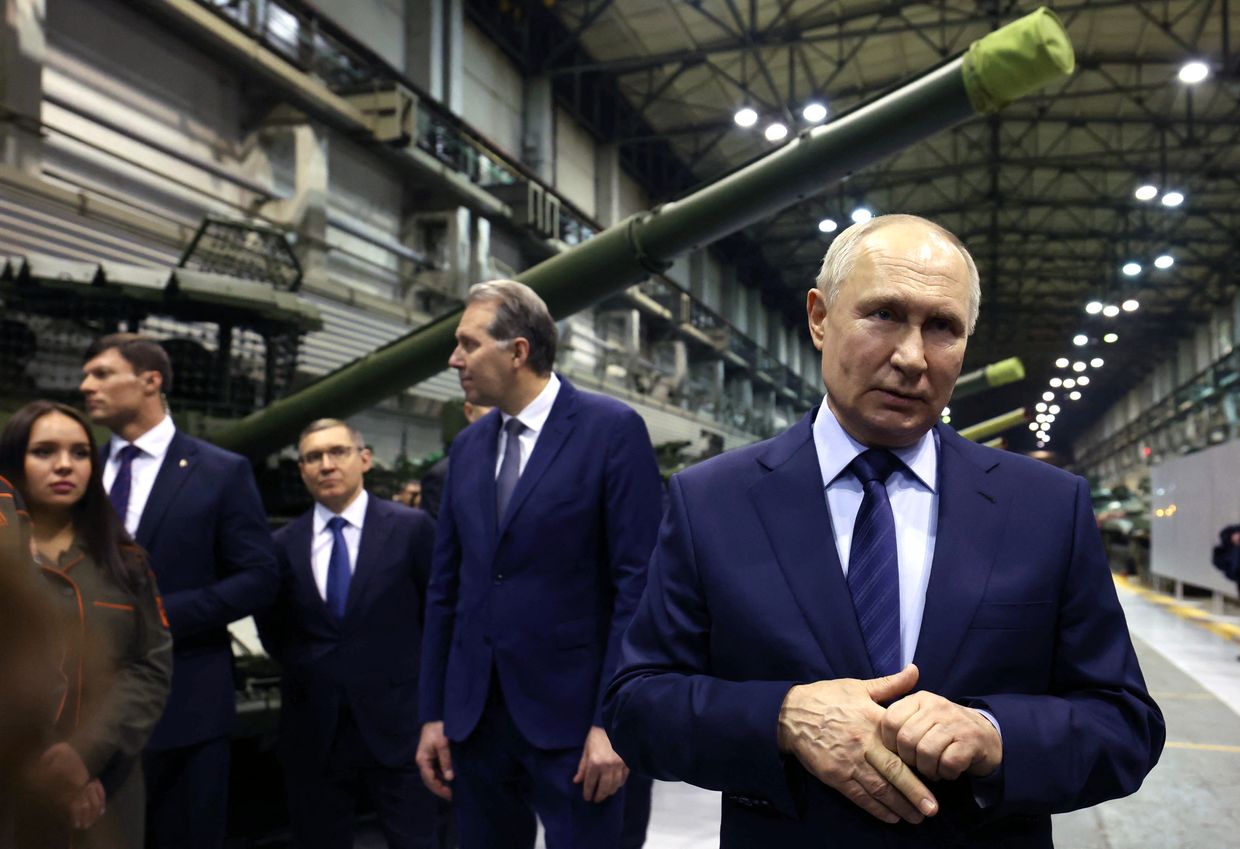Ukraine war latest: Ukraine has lost over 40% of territory previously gained in Kursk incursion, Reuters reports

Key developments on Nov. 23-24:
- Ukraine has lost over 40% of territory previously gained in Kursk incursion, Reuters reports
- West should 'not set red lines' on providing military support for Ukraine, French foreign minister says
- Russia attacked Ukraine with over 800 KAB bombs, 460 drones, 20 missiles this week, Zelensky says
- Russia recruits hundreds of Yemeni mercenaries to fight in Ukraine, FT reports
Ukraine has lost over 40 percent of the territory it previously gained in Russia's Kursk Oblast due to Russian counterattacks, Reuters reported on Nov. 23, citing a source in Ukraine's General Staff.
"At most, we controlled about 1,376 square kilometres, now of course this territory is smaller. The enemy is increasing its counterattacks," the source told Reuters.
"Now we control approximately 800 square kilometres. We will hold this territory for as long as is militarily appropriate."
Ukraine first gained a foothold in Kursk Oblast during a surprise incursion into the Russian region in early August. Since then, Russia has launched extensive counterattacks in an effort to take back the region.
NATO allies believe that Russian President Vladimir Putin is aiming to recapture territory lost in Kursk Oblast before U.S. President-elect Donald Trump's inauguration on Jan. 20, hoping to gain leverage in future peace negotiations, The Telegraph reported.
The source added that nearly 60,000 Russian army personnel are currently stationed in Kursk Oblast, planning to reach the border with Sumy Oblast to create a "buffer zone" there, as Ukraine looked to do with its incursion into Kursk Oblast.
Kyiv has previously said that about 11,000 North Korean soldiers have joined the counteroffensive in Kursk, with the General Staff source noting that the majority of North Korean soldiers was finalizing training along Russian forces.
The Kyiv Independent has not been able to verify the information provided by the General Staff source.
As Russia's attempt to take back Kursk continues to progress, Russia has also intensified its attacks along the eastern front in recent weeks, putting Ukrainian forces under mounting pressure as they struggle to defend key positions.
West should 'not set red lines' on providing military support for Ukraine, French foreign minister says
Western allies should "not set and express red lines" on providing Ukraine with military support against Russian aggression, France's Foreign Minister Jean-Noel Barrot told the BBC in an excerpt of an interview published on Nov. 23 .
The comments come just days after U.S. President Joe Biden approved Ukraine's use of U.S.-supplied long-range missile to strike targets within Russia, many months after President Volodymyr Zelensky first made the request.
Barrot stated that Ukraine could use French-supplied long-range missiles "in the logics of self defense" to strike targets within Russia, but did not elaborate as to whether Kyiv has already used the French-provided weapons.
"(France) will support Ukraine as intensely and as long as necessary," Barrot said.
"Why? Because it is our security that is at stake. Each time the Russian army progresses by one square kilometer, the threat gets one square kilometer closer to Europe."
During the interview Barrot also hinted France may eventually invite Ukraine to join NATO as part of Zelensky's five-point victory plan.
"We are open to extending an invitation, and so in our discussions with friends and allies, and friends and allies of Ukraine, we are working to get them to closer to our positions," he said.
Days before Biden granted approval to use ATACMS in Russia, the leaders of France and the U.K. met in Paris on Nov. 11 to discuss a last-ditch attempt to persuade the U.S. to allow Ukraine to strike deep inside Russia with Western weapons before Donald Trump enters the White House in January.
Russia attacked Ukraine with over 800 KAB bombs, 460 drones, 20 missiles this week, Zelensky says
Over the past week, Russia has launched over 800 KAB-guided aerial bombs, nearly 460 attack drones, and more than 20 missiles, President Volodymyr Zelensky said on Nov. 24.
"The air raid siren has sounded almost daily across Ukraine this week. Only last night, our air defense forces managed to shoot down about 50 attack drones," Zelensky wrote on Telegram, sharing a video showing Russian attacks across the country.
On the morning of Nov. 21, Russia unveiled a new intermediate-range ballistic missile (IRBM), dubbed "Oreshnik," in an attack targeting the city of Dnipro in eastern Ukraine.
"Ukraine is not a testing ground for weapons. Ukraine is a sovereign, independent state. Yet Russia persists in its attempts to destroy our people, spread fear and panic, and weaken us," Zelensky said.
He also reiterated the urgent need for bolstered air defenses. "Ukraine needs more air defense systems, and we are working on this with our partners. It is crucial to strengthen the protection of our sky," he said.
On Nov. 22, Zelensky instructed Defense Minister Rustem Umerov to engage with international allies to acquire advanced air defense capabilities.
The IRBM attack followed Ukraine’s reported first successful strike on a military target within Russian territory using U.S.-supplied ATACMS missiles.
Unlike cruise missiles, IRBMs are guided only in the initial phase of launch, making them less precise. However, their exceptional speed — often exceeding 3,200 kilometers per hour as they near their targets — makes them a formidable threat.
Russia recruits hundreds of Yemeni mercenaries to fight in Ukraine, FT reports
Russia has recruited hundreds of mercenaries from Yemen to fight in its war against Ukraine, the Financial Times (FT) reported on Nov. 24.
The recruits told the FT they had been promised lucrative jobs, "high salaries," and even Russian citizenship. However, after arriving in Russia with the help of a Houthi-linked company, they were "forcibly inducted into the Russian army and sent to the front lines in Ukraine," according to the report.
The FT described the operation as a "shadowy trafficking operation," underscoring the deepening ties between the Kremlin and Yemen's Iran-backed Houthi militants.
Since the start of its full-scale invasion, Moscow has relied on various methods to enlist migrants and foreign nationals to offset its heavy battlefield losses while avoiding full-scale mobilization.
Reports indicate that Russia has recruited individuals from Nepal, Somalia, India, Cuba, and other nations.
North Korea has also sent an estimated 10,000 troops to Russia, many of whom are stationed in the western Kursk Oblast and engaged in combat, a Pentagon spokesperson said during a Nov. 12 briefing.
In October, the Wall Street Journal (WSJ) revealed that Yemen's Houthi militants have been using Russian satellite data to target ships in the Red Sea with drones and missiles. The targeting information was reportedly provided through Iran's Islamic Revolutionary Guard Corps, enabling the Houthis to expand their strikes.
This collaboration demonstrates how far Russian President Vladimir Putin is willing to go to destabilize the Western political and economic order, the WSJ reported. Analysts suggest that Moscow aims to foment unrest from the Middle East to Asia to distract the United States.
According to the FT, U.S. Special Envoy for Yemen Tim Lenderking confirmed that Russia is "actively pursuing contacts" with the Houthis, including discussions involving weapons transfers. While Lenderking declined to elaborate, he noted that Russian personnel in Sana'a are facilitating this dialogue.
"The kinds of weapons being discussed are very alarming and would enable the Houthis to better target ships in the Red Sea and potentially beyond," Lenderking told the FT.














